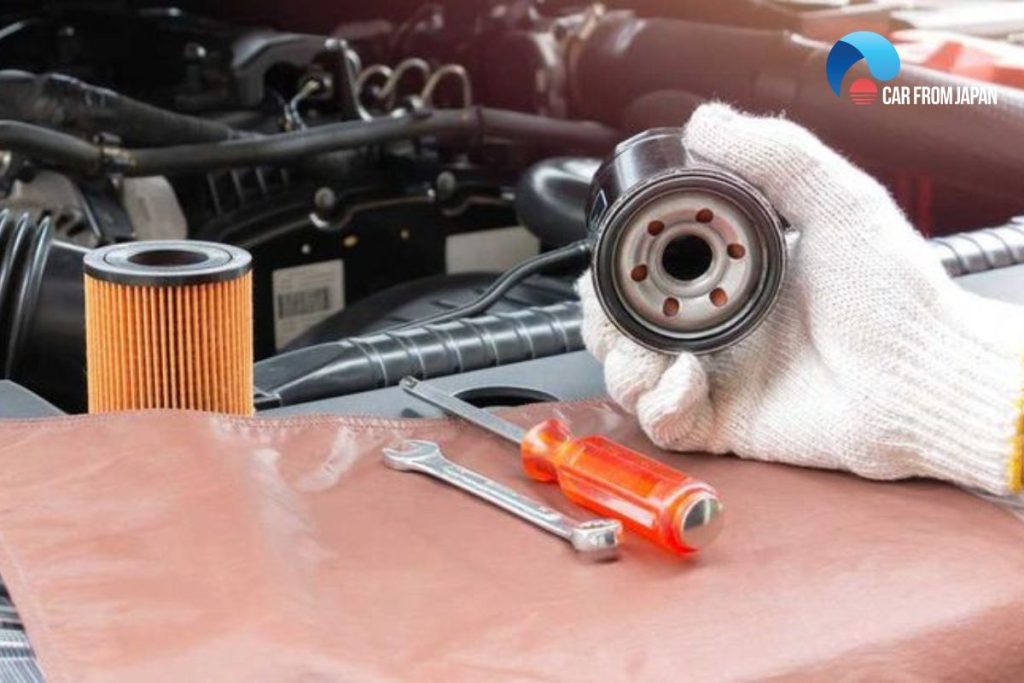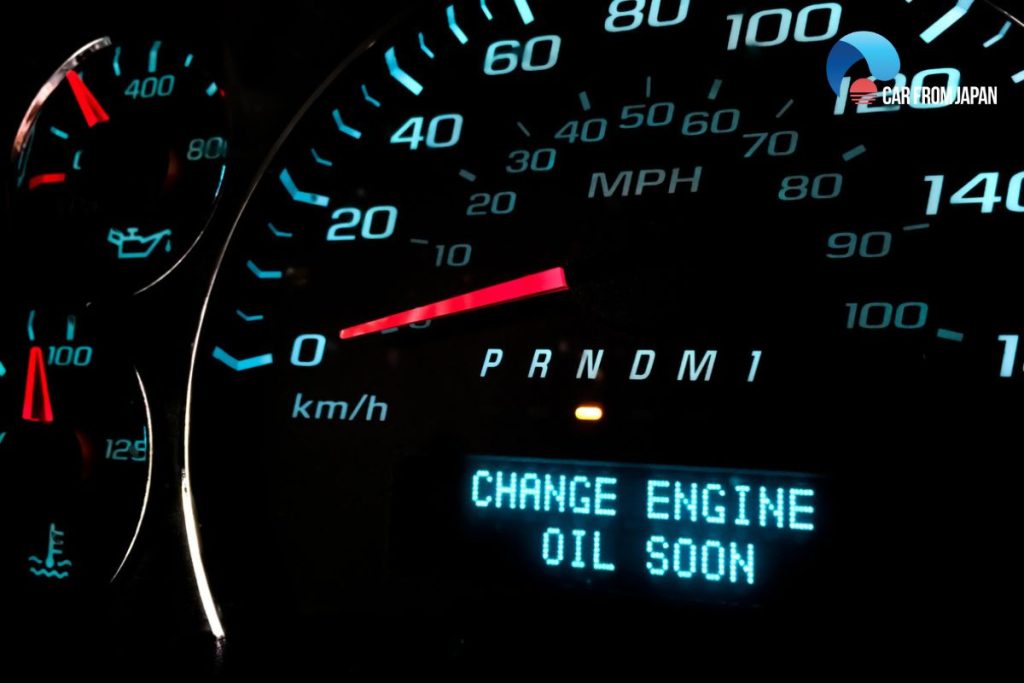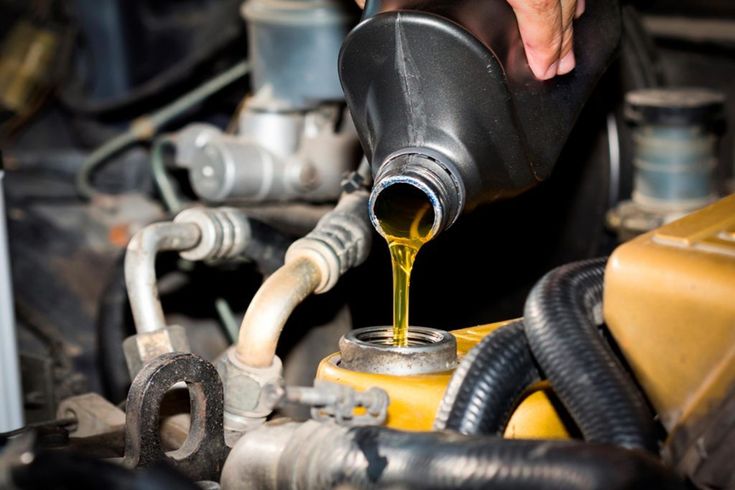You should change the oil every 5000 km or every six months. However, the two different standards sometimes make drivers a little confused. So oil change time vs mileage: which timelines we should use?
Contents
Why Are Oil Changes Important?
When the engine is operating, the internal parts will move and make the friction force, causing the engine to wear out.
In addition, friction is also a factor that converts kinetic power into heat, resonating with the heat released during the fuel combustion which causing to the overheating engine when operating and affects vehicle performance.
Its main responsibility is a barrier between the surfaces of metal parts to effectively lubricate and reduce friction, and prevent engine wear during operation. The function of the engine oil is undeniable.
Over time, the oil will be degraded by 3 main factors: Heat (oxidation, pyrolysis); impurities (dust, water, fuel), and additives in the oil that are lost over time.
Based on the above 3 reasons, it will be calculated whether the oil usage time is long or short based on the initial quality of the oil (grade), the working conditions of the engine, the surrounding environment, and the time of use.
So when should you change your oil to keep the car running smoothly?

Oil Change Time Vs Mileage: Which Timeline Is Better To Use?
Changing oil based on the mileage
“How many miles between oil changes” This question caused quite a bit of controversy. Some mechanics always advised you should change the oil every 3000 miles, but others said that 3000 miles is too frequent change and it’s not necessary to do that.
And the recommended standard they suggest is 7500 to 10000 miles (11000 to 12000 km).
Changing the engine oil based on mileage seems like a simple question. Many car owners often ask the question How much mileage I should change the engine oil.
However, the specific number, 3000 miles, 5000 miles, or 10000 miles, depends on some factors.
Type of oil
The oil change depends on the type of oil according to the standards required by the manufacturers.
For example, Mazda CX-5 2.0 AT 2016 is to use Castrol 5W30 SN oil, to make sure the engine operating well, this oil has a replacement interval of 5,000 miles.
Engine condition
On the other, the oil also depends on the condition of your engine. For example, Mazda CX-5, when was first put into use, the oil was changed every 5,000 miles.
However, over time, with tens of thousands of miles of operation, the parts in your engine have the sign of worn out, so it is necessary to replace the oil periodically.
At that time, the oil change interval will be shorter than the first phases recommended by automakers.
Changing oil based on time
As we all know engine oil contains many components such as antioxidants, anti-foaming, and anti-corrosion. Over time, the quality of the oil will be degraded, affecting the vehicle’s operation.
So how often should the oil be changed? Some auto experts recommend that we will need to change the engine oil every 6 months or at least once a year.
Based on average estimates, your car will drive about 12000 to 17000 km corresponding to this period of time.
These are the reasons making some drivers concerned and not sure what exact mile or oil change time they should apply for their vehicle.

Should we change the engine oil based on time or mileage?
Whether the oil change standards based on time or distance we mentioned above are right for all vehicles. What’s our answer?
During the combustion process, the fuel generates carbon deposits and dust that stick to the engine, the oil will disperse these deposits and soot into small molecules and store them in the oil.
The residue content exceeds the allowable threshold and it can stick back into the engine. So replacing oil periodically is a good way to maintain and prolong the lifespan of your car.
However, how many miles or how long should change the car oil without a fixed standard?
In many cases, it is 3,000 miles, but there are also cases more or less because it depends on many factors: the quality, type of oil, and driving conditions.
The frequency of oil changes will depend on the time of use, how often you drive your car on each terrain and the number of mileages.
For example, there are cars that only take 2-3 months to drive more than 10,000 km, while there are ones that take a year to go 10,000 km.
Therefore, it’s hard to decide accurately the certain mileage or time to change the oil.
According to some information from car manufacturers, it is not necessary to drive enough mileage or time to change the engine oil, you can change the oil sooner if your car is operating in bad conditions.
Besides, after 1 year, your car has not reached the specified mileage, it still needs to change the oil. Therefore, in addition to the mileage, automakers also stipulate that the oil use period is usually 1 year.
Over time, even if the oil quality is good and your car doesn’t drive much, the oil will still lose its quality, and no longer guarantee the lubrication and protection of the engine.
It is necessary to drain and replace it with new oil without having to follow the recommended mileage.

Referring To The Oil Change Standards For Each Type Of Engine
If your vehicle is a gasoline engine, the recommended quality grade oil is API SG, SJ; SL, or SM.
The letter S represents the type of oil used in gasoline engines, and the next letter abbreviated the quality grade (Arranged in alphabetical order). On Diesel engines, oil should be used with performance levels: API CG-4, CH-4, or CI-4.
The letter C represents the Diesel engine, the next letter is the quality grade, and the number 4 represents the 4-stroke engine. If you use the recommended oil, the oil change interval will be as specified.
In reverse, if you change the oil of poorer quality, the oil change cycle will be shorter. The SAE viscosity grade is also a factor that affects the oil change period.
Typically oil has an SAE rating: SAE 40;50 (Single grade), SAE 15W-40, and 20W-50 (Multigrade oil).
During the operation of the engine, there is a residue that adheres to the oil filter.
Over time, the oil filter will not be able to work properly anymore, causing your oil not to be cleaned, dirt accumulation, and in the worst situation, the car engine will damage due to lacking lubrication.
After 2-3 times of changing the engine oil, we should change the oil filter once.
Watch the video from The Sportztourer to have more information on when to change engine oil!
Wrapping Up
Should changing the oil follow the mileage or time? The answer will depend on many factors such as environment, road conditions, car age (older cars will need to change the oil sooner) and driving habits also determine when it’s time to change the oil sooner or later.
Changing the engine oil periodically is a good habit to improve the lifespan of your car. However, you should know the condition of your car also the engine oil (check the oil color or use the dipstick) before replacing the oil to make sure you get the best result.
Besides, you can refer or consult a trusted mechanic to have more useful information about the oil change.
Hopefully, this article will be useful for you! For more insightful Car maintenance tips, follow Car From Japan today!



